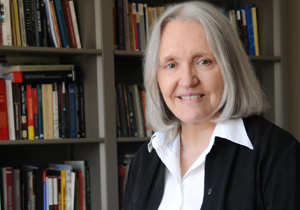Hosted by the Undergraduate Committee on Global Thought
Presented in conjunction with the Alexander Hamilton Society and the Columbia University Journal for Politics & Society
Throughout the country, and the world, the coronavirus has devastated small businesses. Thousands have already shuttered their doors, and millions more face closure and bankruptcy in the coming and months. The effects of the economic decline are being felt most severely by small business owners and the communities they serve—especially those that are already most underserved, such as rural areas and poor urban neighborhoods. The trend only accelerates global inequality and provides big business with additional opportunities for expansion.
The Undergraduate Committee on Global Thought will host a panel discussion on the plight of small businesses as a result of the coronavirus and concurrent recession. Panelists include CGT Member Saskia Sassen, CGT Senior Research Scholar Perry Mehrling, the Hon. Elizabeth S. Stong, and World Bank Adviser Antonia Menezes.
Part of Rethinking the World, a programmatic series from the Committee on Global Thought exploring the challenges and opportunities inherent in our unique global moment of compounding crises as well as unforeseen opportunities for creative solutions. For information on other events in the series, click here.

 Saskia Sassen is the Robert S. Lynd Professor of Sociology at Columbia University. Her research and writing focuses on globalization (including social, economic and political dimensions), immigration, global cities (including cities and terrorism), the new technologies, and changes within the liberal state that result from current transnational conditions. Sassen's interests include urban sociology, the sociology of transnational processes and globalization, technology, the dynamics of powerlessness in urban contexts and migration.
Saskia Sassen is the Robert S. Lynd Professor of Sociology at Columbia University. Her research and writing focuses on globalization (including social, economic and political dimensions), immigration, global cities (including cities and terrorism), the new technologies, and changes within the liberal state that result from current transnational conditions. Sassen's interests include urban sociology, the sociology of transnational processes and globalization, technology, the dynamics of powerlessness in urban contexts and migration. Perry Mehrling is Professor of International Political Economy at the Pardee School of Global Studies, Boston University, where he teaches courses on the economics of money and banking, the history of money and finance, and international money, the first of these is
Perry Mehrling is Professor of International Political Economy at the Pardee School of Global Studies, Boston University, where he teaches courses on the economics of money and banking, the history of money and finance, and international money, the first of these is 
